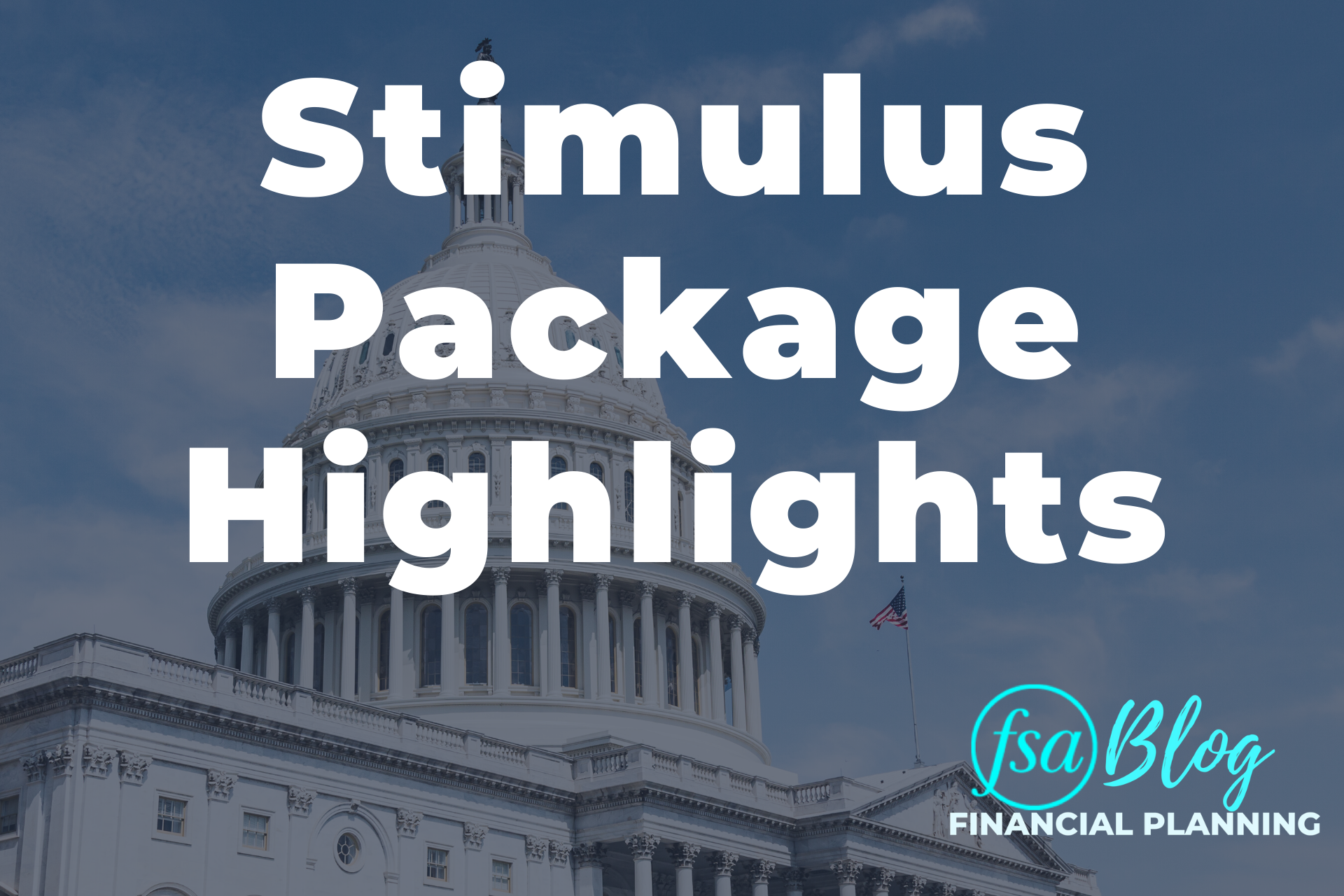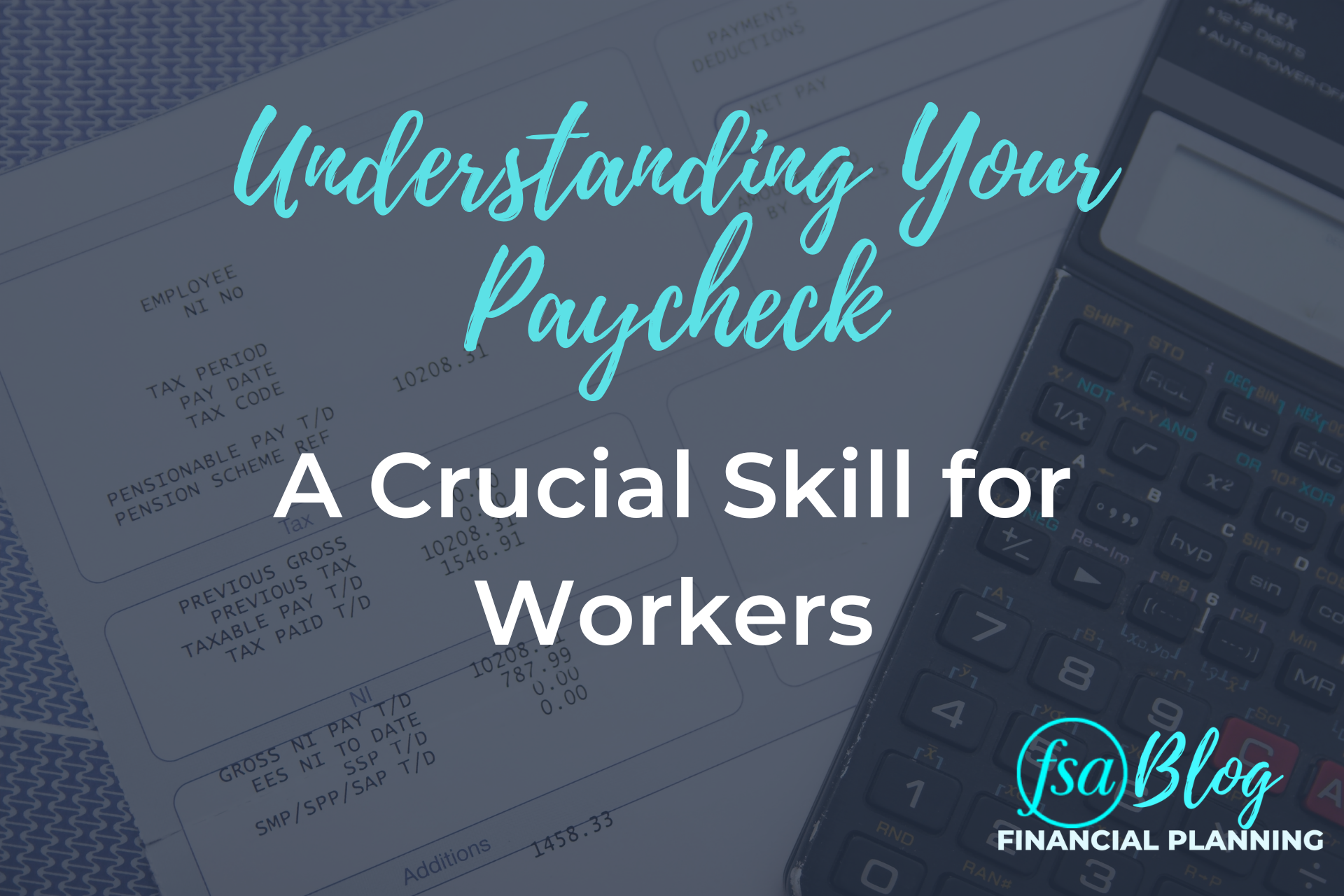Below are some highlights of the recently passed CARES (Coronavirus Aid, Relief, Economic Security) Act that we feel are most applicable to our clients. Please understand that definitions, details, and clarifications continue to be forthcoming. Additionally, there may be other parts of the Act that apply to you, and we recommend you seek the advice of a tax professional.
Federal Tax Filing Extended
The 2019 federal tax filing and IRA contribution deadlines are now extended to July 15, 2020. Maximum IRA contributions for 2019 and 2020 are $6,000. Individuals over age 50 may contribute $7,000 for 2019 and 2020. Please check with your particular state, as not every state is making the same extension for state income tax filing.
Required Minimum Distributions (RMDs)
All RMDs are waived entirely for 2020. This includes IRAs, inherited IRAs, and employer-sponsored plans. If you turned 70½ in 2019 and waited to take your first distribution until 2020, you could skip that distribution as well. If you have already taken your RMD for this year, you may be able to roll that money back into the account. Only distributions taken on or after February 1 qualify for rollover, and inherited IRAs are excluded from this provision. The rollover must be completed by July 15, 2020.
Note: The SECURE Act passed at the end of 2019 changed the RMD age from 70½ to 72. For anyone who turns 70½ AFTER January 1, 2020, you can now wait until age 72. For other information on RMD changes made by the SECURE Act, please click here to view our blog post.
Retirement Account Distributions
If you had to take a distribution from your IRA in 2020 “because of the impact of the coronavirus,” the taxes on the distribution can be paid equally over the next three years. This new option applies to distributions up to $100,000. You also have the option to roll the distribution back into the retirement account over the next three years, therefore avoiding any income taxes on that money. Also, the 10% penalty is waived for these distributions for individuals under age 59½.
Qualified Charitable Distributions (QCDs)
If you still plan to give to charity in 2020, the QCD is still most likely the best option. QCDs are still only available to those older than 70½.
One-Time Economic Impact Payment (Recovery Rebate)
Rebate checks have been received or are coming for those who qualify, and no action is needed on your part. The recovery rebate is a one-time payment based on your most recently filed (2018 or 2019) tax return. Individuals could receive up to $1,200, and married couples could receive up to $2,400 (those with children under the age of 17 could receive an additional $500 per child). The amount received is non-taxable. To qualify for the rebate, you must be under certain income (AGI) limits (phase out begins at $150,000 for Married Filing Jointly filers, $112,500 for Head of Household filers, and $75,000 for all other filers). If your 2018/2019 income disqualifies you for the rebate, but your 2020 income has dropped within the limits, you will receive the rebate when you file your 2020 return next year.
Unemployment
The CARES Act removed the waiting period, increased benefits by $600 per week, and extended the unemployment benefit period up to 13 extra weeks. It also created Pandemic Unemployment Assistance which allows self-employed individuals to apply for unemployment benefits.
Small Business Provisions – must be applied for by June 30, 2020
The PPP (Paycheck Protection Program) are loans for small businesses with fewer than 500 employees (including self-employed individuals) for up to $10M. These are fully guaranteed loans by the Small Business Administration. The portion of the loan used during the first eight weeks for specific expenses (including payroll, rent, utilities, etc.) will be forgiven. Certain requirements must be met to be eligible.
Additionally, there is an Employee Retention Credit available if your business was mandated by the government to shut down or your business Quarterly Gross Revenue dropped by more than 50%. See your tax professional for more assistance on both these programs.
The CARES Act also provided some options to delay the payment of payroll taxes into 2021 and 2022.
One round of funding has already been exhausted (in only 13 days), but another round of funding was approved on April 24 and is expected to be exhausted within 14 days. This is a first-come-first-served program so get your application in (via your bank) ASAP if this applies to you.
Federal Student Loans
If you have a student loan, required payments (and interest) on federally backed student loans are suspended until 9/30/2020. Note: Even if you do not make payments during this time period, the time will still count towards federal student loan forgiveness if you are in that program. You can still make payments during this time, if you’d like, but it is not required.
A landslide of information is being published all at once and continues to be updated.
We are here, along-side your tax professional, to help you make decisions. If you are affected by the CARES Act and need assistance, please do not hesitate to ask.
FSA’s current written Disclosure Brochure and Privacy Notice discussing our current advisory services and fees is also available at https://fsainvest.com/disclosures/ or by calling 301-949-7300.




